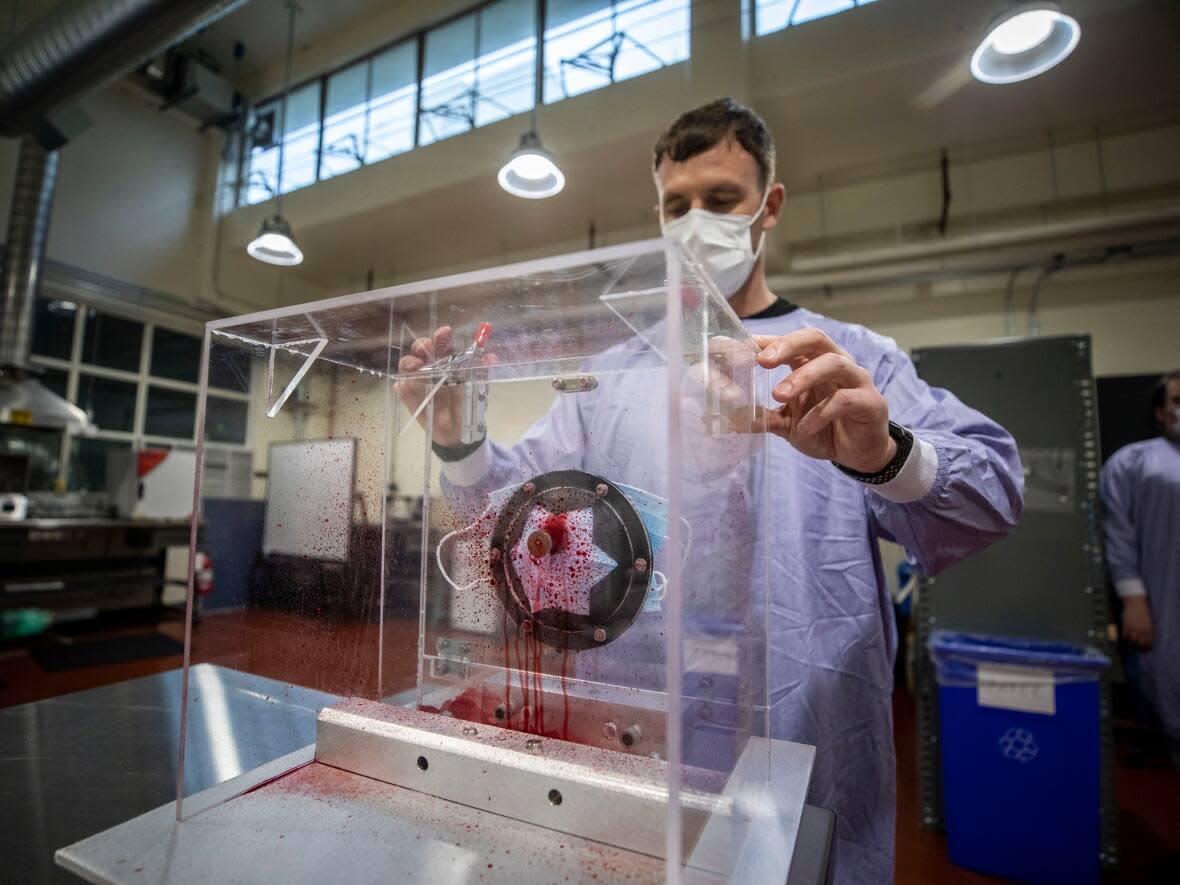Because not all PPE is created equal, new Vancouver lab tests for quality assurance

Pre pandemic, you could forgive the average Canadian for assuming PPE was some sort of new fancy hockey stat.
Power-play efficiency, anyone? How about puck productivity effect?
But thanks to COVID-19, most are now well aware that PPE is actually shorthand for personal protective equipment: the masks, gloves, N95 respirators and gowns that keep front-line health-care workers safe from the spread of infectious disease like coronavirus.
As critical as PPE is, not all supply lines are created equal, nor of the quality necessary to guarantee protection.
That's how an idea for a new PPE testing lab became a reality at Vancouver General Hospital, the first accredited lab of its kind in Western Canada
According to the lab's medical director, once the COVID-19 pandemic hit, followed in short order by a PPE supply crunch, it became abundantly clear that B.C. needed a rapid way to assure the PPE being purchased met North American standards.
"Most of the [testing] laboratories — and there are only a few in North America — are in the United States," said Dr. Titus Wong.
"Prior to the pandemic, every PPE that had to be tested was sent to the U.S. and it would take up to two months for those results to come back."

According to Wong, the VGH lab has already vetted millions of items of PPE.
Samples are evaluated using the seven tests available in the lab, including for fluid resistance, hydrostatic pressure, flammability and synthetic blood resistance.
One test makes sure N95 respirators actually fit a person's face snugly enough so as not to leave gaps where tiny airborne droplets can pass through and potentially transmit virus or bacteria.
Wong said the multidisciplinary team assembled to work the lab has expertise in accreditation, engineering, occupational health and safety and infection control.
Besides testing PPE purchased for use in B.C., the lab is also working to support Canadian PPE manufacturers and researchers.
Vancouver Coastal Health is responsible for the lab, with support from the Ministry of Health and the Provincial Health Services Authority.

 Yahoo Movies
Yahoo Movies 
